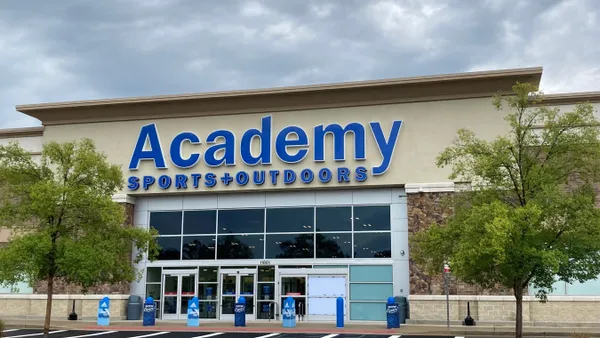Dive Brief:
- US Foods will work with its suppliers to develop emission reduction goals by 2027, part of the food distributor’s overall plan to reduce its environmental footprint, according to a press release last week.
- The company said it will collaborate with key suppliers to create science-based emission reduction goals. US Foods will also help vendors develop "meaningful supply chain interventions” to lower emissions.
- The move comes as the food distributor works to reduce 32.5% of its own emissions by 2032. To meet that goal, US Foods said it plans to invest in renewable energy and expand its EV fleet.
Dive Insight:
Scope 3 emissions are often a stumbling block for companies looking to reduce their carbon footprint, as businesses retain less control over their suppliers’ carbon footprints.
Purchased goods and services make up the vast majority of US Foods’ Scope 3 emissions, and the food distributor’s sustainability plan is part of a wider trend of tackling emissions through supplier collaboration.
Competitors have taken similar approaches — Sysco announced last November that it would work with its highest-emitting suppliers to establish sustainability targets in line with the goals of the Paris Agreement by 2026. Scope 3 emissions make up 98% of Sysco's carbon footprint, according to the company's 2021 Corporate Social Responsibility report.
And Mars, PepsiCo and McCormick last year launched a coalition to provide suppliers with resources and tools to create their own climate action plans.
US Foods is also bringing its sustainability charge to its distribution centers, committing earlier this year to convert fleet fuel at all California broadline distribution centers from traditional diesel fuel to renewable diesel fuel by mid-2022.
“These ongoing investments are a testament to our dedication to reducing our organization’s environmental footprint,” said Kristin Coleman, executive vice president, general counsel and leader of CSR at US Foods. “The expansion of our facility and fleet efficiency initiatives are a critical part of US Foods’ long-range sustainability plans to drive end-to-end change.”
This story was first published in our Procurement Weekly newsletter. Sign up here.














